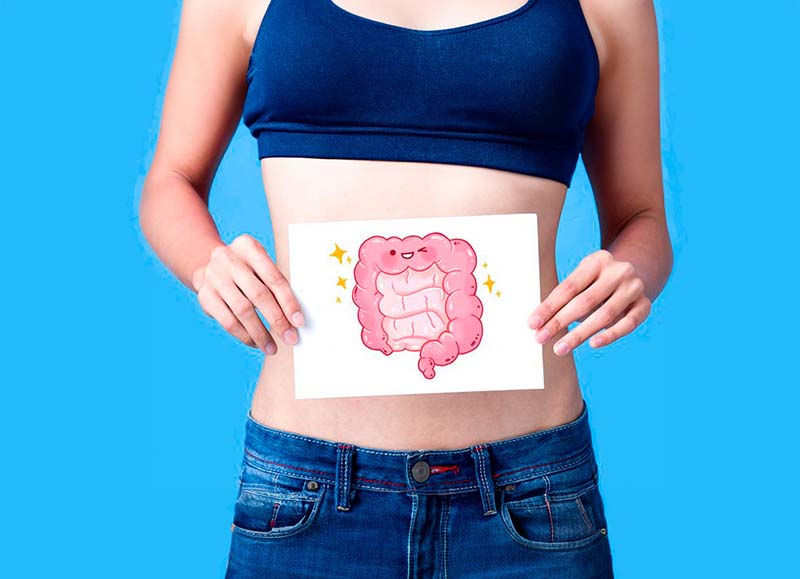Pickling has been a popular method of food preservation for centuries, a smart way for our ancestors to ensure food availability all year-round. Surprisingly, pickles also hold a lot of fascinating benefits, especially in the realm of weight management.
You can easily notice their appearance on the list of zaro-calorie foods. Follow us to answer the question: “Are Pickles Good for Weight Loss?” and delve into the nutritional values of these calorie-friendly foods.
Related articles
- Is Watermelon Good for Weight Loss? The Slimming Truth!.
- Are Tomatoes Good For Weight Loss?.
- Are Pistachios Good for Weight Loss? Uncover the Surprising.
Are Pickles good for weight loss?
Pickles are an excellent choice for those on a weight loss journey, primarily due to their low-calorie content. On average, a serving of pickles contains merely 5 calories, making them one of the few snack options that are both low in calories and delicious. This is particularly significant when you consider common snacking alternatives. For instance, if you replace high-calorie snacks like chips with real dill pickles thrice a week over the course of a year, the calorie savings could lead to a weight loss of over 6 pounds of fat.

Note: While pickles are a healthy snack choice due to their low calorie, fat, and sugar content, their high sodium level is something to be mindful of. Excessive sodium intake can lead to health issues like hypertension. Therefore, it’s wise to consume them in moderation, especially if you have any health conditions that necessitate a low-sodium diet. Additionally, pickles made through fermentation can provide probiotics, which are beneficial for gut health. This cool fact about pickles often gets missed, so their benefits even go beyond what we are expecting!
Nutritional Information for Pickles
The nutritional profile of pickles can differ based on factors like their type, shape, flavor, and brand. Data from the U.S. Department of Agriculture reveals that a typical serving of standard, store-bought dill or kosher dill cucumber pickles offers the following:
- Only 5 calories, making it an excellent low-calorie snack option.
- A minimal 1 gram of carbohydrates.
- No protein, which is typical for most vegetables.
- Zero grams of fat, contributing to its suitability in low-fat diets.
- A small amount of fiber, at 0.3 grams, which is beneficial for digestive health.
- A considerable 325 milligrams of sodium, which is a significant factor for those monitoring their salt intake.
- Just 0.5 grams of sugar, making it a low-sugar snack choice.
Note: Pickles contribute to your daily intake of vegetables, offering a large amount of fiber and nutrients. For those looking for a crunch without the high calories, pickles can be a smart choice, but it is advisable to consume moderately due to its high sodium intake.
6 Effects of Eating Pickles
Eating pickles can offer several health benefits thanks to their traditional preparation methods and unique composition. Here are six positive effects of pickles, convincing you to include pickles in your daily meals:
Helps Meet Daily Vegetable Needs
Most Americans fall short of their daily fruit and vegetable intake. Since pickles originate from cucumbers, incorporating them into your diet can contribute to your vegetable consumption. Registered Dietitian Lauren Manaker highlights that pickles not only meet this need but also provide important fiber.

Supports Gut Health
Many pickles undergo fermentation, introducing beneficial bacteria like lactic acid bacteria. Fermented foods are known for their probiotic content, which maintains a healthy gut flora balance. This is crucial for improving digestion and potentially aiding in conditions like IBS, IBD, and other digestive issues.

Aids In Weight Loss
While pickles alone won’t cause weight loss, their low calorie and fat-free nature, combined with fiber content, can enhance satiety. This helps in managing hunger and supports weight control. Dietitians like Scott Keatley and Bianca Tamburello note that the acetic acid in pickles also plays a role in weight management.

Promotes Bone Health And Blood Clotting
Pickles are a good source of Vitamin K, essential for bone health and blood clotting. A whole dill pickle can provide about 20% of the daily recommended amount of Vitamin K.
Supports Immune Function
Pickles contain small amounts of vitamins and minerals like Vitamin C, potassium, calcium, and magnesium. These nutrients, especially Vitamin C, are vital for immune function and overall health.

Contains Antioxidants For Better Eye Health
Pickles have antioxidants like lutein and zeaxanthin, known for supporting eye health. These antioxidants accumulate in the eye’s macula and protect against oxidative stress and blue light damage.

Note: Remember that the benefits you obtain vary based on the type and preparation of the pickles, so choosing naturally fermented ones can offer more probiotic benefits.
Health Risks of Pickles
The tangy taste and crispy texture of pickles can be quite appealing, but excessive consumption comes with certain health risks that are important to be aware of. Here are some of the potential side effects associated with eating too many pickles:
- Harmful to Your Kidneys: Pickles contain high levels of salt, which increases sodium intake. This excess sodium can lead to several health issues such as water retention and bloating. More seriously, it can elevate blood pressure and place additional strain on the kidneys, potentially leading to chronic kidney problems.
- Leads to High Cholesterol Levels: The process of pickle preparation often involves soaking the vegetables in oil to act as a moisture barrier. This oil, however, can contribute to increased cholesterol levels. High cholesterol is a known risk factor for heart disease and has also been linked to potential liver damage over time.
Pile pickles can be a tasty addition to your diet, it’s advisable not to consume them too frequently due to their high salt content. Being mindful of these risks and consuming pickles in moderation can help you fully receive their benefits without facing any negative consequences.
Note: It’s important for consumers to be aware of these risks, especially those with pre-existing health conditions like hypertension or heart disease. Opting for low-sodium or homemade pickles with less salt and oil can be a healthier alternative. Moreover, moderation is key in maintaining a balanced and healthy diet.
Conclusion
In conclusion, the question “Are Pickles good for weight loss?” has a surprisingly positive answer. With their low-calorie count and potential health benefits, pickles can be a flavorful addition to your weight loss plan.
However, it’s important to balance their intake due to their high sodium content. We’d love to hear your own experiences with incorporating pickles into your diet. Share your stories in the comments and don’t forget to explore more insightful articles from HealthConnect for more health and wellness tips. Join us on a journey to healthier living!

Dr. Joyce Slater: Your Guide to Informed Health Choices
Dr. Joyce Slater shines as a distinguished expert in the field of nutrition and public health. Contributing her vast expertise to HealthConnectbc, she embodies a deep-seated passion for enhancing public well-being. As a respected figure in her field. Dr. Slater’s academic journey and professional achievements are nothing short of inspirational.
Holding a significant position as a researcher and educator, Dr. Slater has delved deeply into the intricacies of food literacy and nutritional science. Her work, prominently featured in numerous esteemed scientific publications, underscores her dedication to expanding our understanding of food’s role in health and society.
At the heart of Dr. Slater’s professional ethos is a profound desire to positively impact individual lives through education and research. She often says, “Empowering people with the knowledge to make healthier choices is the most rewarding aspect of my work.” This principle is the cornerstone of her involvement with HealthConnectbc, where she strives to provide reliable and practical health advice.
Dr. Slater’s contributions to HealthConnectbc are multifaceted: academically, she offers insights into the complex world of nutrition and health, enhancing both public understanding and professional practices. Additionally, she is instrumental in guiding and inspiring the next generation of health professionals, thus fostering future excellence in the field.
Juggling rigorous research with her educational duties, Dr. Slater demonstrates an unwavering commitment to her profession. Her approachable nature and genuine concern transcend the confines of academia, touching the lives of everyone she interacts with. Dr. Slater looks forward to continuing her journey of discovery and education, dedicated to the ongoing improvement of public health and nutrition.
At HealthConnectbc, Dr. J. Slater is not just a contributor; she is a guiding light, dedicated to enlightening and motivating individuals towards a healthier and more informed lifestyle.
PUBLISHED ARTICLES
- Food literacy competencies: A conceptual framework for youth transitioning to adulthood (2018)
- Self-perceived eating habits and food skills of Canadians (2016)
- Challenges to acquiring and utilizing food literacy: Perceptions of young Canadian adults (2016)
- Socio-demographic and geographic analysis of overweight and obesity in Canadian adults (2009)
- Sustainable well-being: Concepts, issues, and educational practices (2014)

